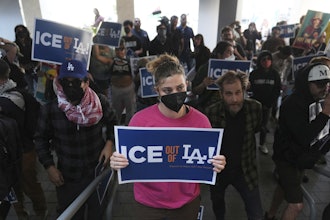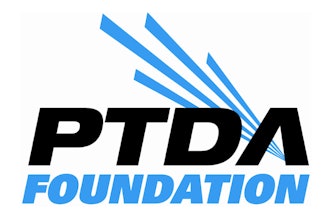
A not insignificant number of Americans remain unvaccinated against COVID-19. For the most part, these individuals are not getting their shots by choice rather than because of a lack of access to the vaccines. And while the vaccine-hesitant and vaccine-resistant are well within their rights to refuse inoculation against the virus, distributors who (or seek to) employ them will generally be within their rights to terminate or refuse to hire them (or return them to the workplace) because of their decision.
On May 28, the Equal Employment Opportunity Commission (EEOC) released updated guidance for employers and employees about COVID-19 vaccinations and employment. This guidance, which follows previous releases that left many questions unanswered and legal issues unaddressed, makes clear that employers can mandate COVID-19 vaccinations for employees and, in most cases, reject candidates or fire employees who do not get the vaccine. Employers can also offer incentives to employees to encourage them to get vacciniated.
While there may well be return to work plans that contemplate different scenarios as to those not vaccinated, distributors and businesses, generally, must be mindful of their obligations under the Americans with Disabilities Act (ADA), the Genetic Information Nondiscrimination Act (GINA), Title VII of the Civil Rights Act, and other laws which provide exceptions or create legal impediments for those whose objection to vaccination is based on health reasons or legitimate religious beliefs. In last November/December's issue of ID, I discussed the challenges facing distributors if and when a vaccine became available. Now, the return to work horizon has clarified, with new guidance, but the devil is always in the details. This high-level overview may well help distributors craft or modify a solid return to work plan.
Mandatory Vaccination and Employee Incentives
Here are some of the key takeaways for employers as they welcome workers back and develop and implement their policies regarding COVID-19 vaccinations:
Federal employment laws do not prevent an employer from requiring all employees physically entering the workplace to be vaccinated for COVID-19, subject to the reasonable accommodation provisions of Title VII and the ADA and other equal employment opportunity considerations.
Employers may provide employees and their family members with information to educate them about COVID-19 vaccines, raise awareness about the benefits of vaccination, and address common questions and concerns. Likewise, employees are well within their labor rights to fully discuss amongst themselves the issue of vaccination.
Under certain circumstances, employers may offer employees incentives to encourage them to receive their COVID-19 vaccines. This can include offering incentives to employees who voluntarily provide documentation or other confirmation of vaccination so long as this information is kept confidential.
Vaccination incentives based on an employee providing information about their vaccination status do not implicate concerns under GINA because no genetic information is involved.
Employers Must Still Make "Reasonable Accommodation"
While an employer can mandate vaccinations, generally, they must be mindful of whether their vaccine requirement screens out or is likely to screen out an employee or candidate with a disability (such as an allergy to a component of a vaccine or a compromised immune system). If so, the employer must show that the unvaccinated worker’s presence in the workplace poses a "direct threat" to others because of a "significant risk of substantial harm to the health or safety of the individual or others that cannot be eliminated or reduced by reasonable accommodation." This is a high burden; to the extent an issue, it is advisable to review this type of situation with employment counsel.
To assess whether an unvaccinated employee poses a "direct threat” to other employees, the EEOC recommends that employers conduct an "individualized assessment" of the situation includes consideration of:
- The duration of the risk posed by the employee.
- The nature and severity of the potential harm the unvaccinated employee could cause.
- The likelihood that the potential harm will occur due to the employee’s presence in the workplace.
- The imminence of the potential harm.
However, even where an unvaccinated employee represents a direct threat, the employer still must attempt to reduce that threat through reasonable accommodation under the ADA. Thus, an employer cannot exclude a disabled and unvaccinated employee from their workplace "unless there is no way to provide a reasonable accommodation (absent undue hardship) that would eliminate or reduce this risk so that the unvaccinated employee does not pose a direct threat.”
- Potential reasonable accommodations could include:
- Requiring the employee to wear a mask.
- Working staggered shifts.
- Making changes to the work environment (such as improving ventilation systems or limiting contact with other employees and non-employees).
- Permitting remote work if feasible.
- Reassigning the employee to a vacant position in a different workspace.
Sincerely-Held Religious Objections
If an employee’s "sincerely-held religious beliefs" preclude them from getting a COVID-19 vaccination, the anti-discrimination provisions of Title VII of the Civil Rights Act of 1964 may shield them from compliance with an employer’s vaccine mandate. The employee bears the burden of demonstrating the legitimacy of their religious objections to the vaccine, which do not include political or personal views, such as those based on conspiracy theories or alleged concerns about individual liberties.
 Mendelsohn
Mendelsohn
The EEOC’s vaccination guidance, while lengthy and comprehensive, cannot account for every fact pattern or issue that may arise as employers and employees navigate their collective post-pandemic employment landscape.
Should distributors see experienced counsel on these and other employment topics, including new laws, please contact me at 312-840-7004 or [email protected].
The information contained in this article is provided for informational purposes only, and should not be construed as legal advice on any subject matter. The author expressly disclaims all liability in respect to actions taken or not taken based on any or all the contents of this article.























